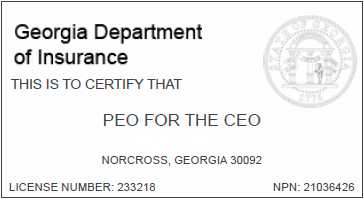What Are The Cost Of Providing Health Insurance For Small Business Employees?
Employee health insurance offers several advantages for both businesses and their workforce. These benefits include attracting and retaining top talent, promoting employee well-being, and enhancing overall productivity. Strategically, health insurance can position a company as an employer of choice, contributing to its competitive edge in the market.
Navigating the financial landscape of health insurance for small businesses involves understanding the various costs associated with providing this vital employee benefit. Several factors can influence the overall expense of how much health insurance costs, from monthly premiums by insurance type to state-specific considerations. Small business owners must weigh these elements to effectively manage their budgets while ensuring their team has access to quality healthcare.
- Importance of Providing Health Insurance: Offering health insurance is not merely a legal requirement for some businesses; it’s a strategic decision that can have profound effects on the health and stability of both employees and the business itself. Key reasons include:
Attracting and Retaining Talent: Benefits like health insurance stand out in a competitive job market.
Employee Health and Productivity: Comprehensive health coverage leads to healthier employees, reducing sick days.
Financial Protection: Health insurance shields employees from unexpected health costs.
- Factors Influencing Health Insurance Costs: Several factors impact the cost of health insurance for small businesses:
Monthly Premiums by Types: Costs vary based on the insurance plan selected (e.g., PPO, HMO, EPO networks).
State Considerations: Regulations and market conditions specific to each state affect insurance costs.
Employee Demographics: Age and health profiles of employees influence premiums.
Remember, finding the right balance between cost and coverage is crucial. Small businesses can explore options like the Small Business Health Options Program (SHOP) and employer-sponsored insurance plans.
When comparing health insurance plans for small businesses, consider the following steps:
- Assess Your Needs:
Understand your employees’ needs and preferences. Consider factors like age, health conditions, and family size.
Evaluate the coverage required (e.g., doctor visits, prescriptions, preventive care).
- Compare Plan Types:
Health Maintenance Organization (HMO): Requires referrals for specialists, but often has lower premiums.
Preferred Provider Organization (PPO): Offers more flexibility but may have higher costs.
Exclusive Provider Organization (EPO): Similar to PPO but without out-of-network coverage.
High Deductible Health Plan (HDHP): Lower premiums, and higher deductibles, often paired with Health Savings Accounts (HSAs).
- Check Network Coverage:
Ensure the plan includes local doctors, hospitals, and specialists.
Verify if your preferred providers are in-network.
- Compare Premiums and Deductibles:
Premiums are monthly costs; deductibles are what you pay before insurance kicks in.
Balance lower premiums with manageable deductibles.
- Evaluate Copayments and Coinsurance:
Copayments: Fixed fees for specific services (e.g., doctor visits, prescriptions).
Coinsurance: Percentage of costs you share with the insurer after meeting the deductible.
- Review Prescription Drug Coverage:
Check if the plan covers necessary medications.
Look for formularies (lists of covered drugs).
- Consider Additional Benefits:
Dental, vision, mental health, and wellness programs.
Telemedicine services.
- Compare Costs Across Plans:
Use online tools or consult an insurance broker.
Consider total annual costs (premiums + out-of-pocket expenses).
Each business’s needs are unique, so choose a plan that aligns with your budget and employee requirements.
When you provide health insurance to your employees, the premiums you pay as an employer are typically tax-deductible as a business expense. This means you can reduce your taxable income by the amount you spend on premiums.
Additionally, employer-paid premiums for health insurance are exempt from federal income and payroll taxes, which lowers most workers’ tax bills and reduces their after-tax cost of coverage.
Health Insurance as a Tool for Competitive Advantage
Health insurance is not a legal obligation for groups under 50 employees but a strategic tool. Offering comprehensive coverage enhances employee satisfaction, reduces turnover, and attracts top talent.
Companies that prioritize employee well-being gain a competitive advantage by fostering a positive workplace culture. Communicating the value of health insurance to prospective employees reinforces the organization’s commitment to their welfare.
Budgeting for Health Insurance: The Role of Insurance Brokers and PEOs
Budgeting for health insurance involves balancing costs and benefits. Working with insurance brokers provides access to expertise, allowing businesses to compare plans, negotiate rates, and find cost-effective solutions. Professional Employer Organizations (PEOs) offer bundled services, including health insurance, payroll, and HR administration. PEOs pool resources across multiple companies, potentially reducing costs. Evaluating these options helps businesses make informed decisions while managing their health insurance budgets effectively.
As your dedicated PEO broker, we take a holistic approach to healthcare, ensuring that you not only meet compliance standards but also maximize your savings potential. By shopping the “large group” master health insurance PEO options alongside the open market health insurance, we craft creative solutions that typically result in 20% to 40% savings on premiums.
Ready to optimize your employee benefit plans and streamline your HR processes? Reach out to Suzanna@PEOfortheCEO.com today for personalized assistance or schedule a chat with us.
Visit PEOfortheCEO.com to learn more.
Frequently Asked Questions:
What are the key benefits of offering employee health insurance?
Providing health insurance offers financial protection, attracts and retains top talent, enhances productivity, and reduces absenteeism. It’s a valuable benefit that shows employers care about their employees’ well-being.
How can small businesses maximize tax benefits?
Small businesses can optimize tax benefits by deducting premiums, exploring retirement plans, and using accounting software. Year-end tax planning is crucial for maximizing savings
What legal requirements apply to health insurance coverage?
Groups under 50 employees are not legally required to provide health insurance, but larger employers may face penalties under the Affordable Care Act (ACA). Small employers have less obligation, but offering coverage remains common.
How does health insurance boost your company’s competitive advantage?
Providing health insurance helps attract and retain top talent. Healthy employees perform better, leading to consistent service and products. It levels the playing field, allowing small businesses to compete effectively.
Why consider working with an insurance broker or PEO for budgeting health Insurance?
Insurance brokers offer personalized guidance and access to a range of insurance options. PEOs provide bundled services, including HR management and health insurance. The choice depends on factors like budget and customization needs.
The post What Are The Cost Of Providing Health Insurance For Small Business Employees? appeared first on PEO For The CEO.
About Suzanna Martinez
Suzanna Martinez is the founder of PEO For The CEO, bringing
20+ years of experience working for multiple PEO companies.
She has guided hundreds of businesses in Georgia and Colorado
to streamlined HR operations and significant cost savings.
Suzanna specializes in negotiating large-group health insurance
rates and matching businesses with the right PEO partner.


